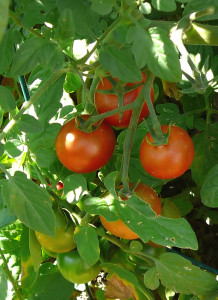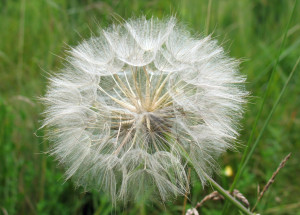 The following narrative is closely based on a deeply moving conversation I had with “Knut,” an elementary schoolmate whom I’d never forgotten, and with whom I managed to get back in touch just as he was facing his mortality. In this novel excerpt, the grieving narrator, an atheist, is trying to decide her own future.
The following narrative is closely based on a deeply moving conversation I had with “Knut,” an elementary schoolmate whom I’d never forgotten, and with whom I managed to get back in touch just as he was facing his mortality. In this novel excerpt, the grieving narrator, an atheist, is trying to decide her own future.
Knut lives in a fatigued yellow wood-frame bungalow with windows overlooking the sea. When he opens the door to my knock, he has on silk pajamas. “Come,” he says, and his soft warm voice and presence reminds me of the Knut of my school days and dissolves my nervousness.
“Would you like to take some tea into the garden?” He pours us mugs, and I follow him out the back door, where we walk along a curvy stone path as he points out his vegetables in various stages of growth.
He stoops here and there to pull a weed. Then he says, “I’m dying.” Startled into muteness, I withhold an impulsive “Me too.” Some vague complaints over a period of several months last year spurred him to see a doctor, and blood in his urine led to a diagnosis of bladder cancer. “About four months ago they found it had metastasized into my lungs.” I wait, determined to emulate the nine-year-old boy he used to be who listened so well. A wind chime tinkles.
“It’s okay though,” he says. “Maybe some of the way I feel has to do with my Zen Buddhism. I’m comfortable with the idea that my life is coming to an end.” He points to a stone bench, and we both sit. “Of course, it’s always a little scary at first. I had no idea what the options were, what the prognosis would be. Actually I was curious,” and though this startles me, he’s relaxed, his body posture unresisting, no sarcasm or irony in his tone. “And it’s been educational, fascinating.” He laughs. And then he isn’t smiling. “But I’m not going to get better.”
“What do you think comes next?” When he hesitates before responding, I work out that the scattered design on his pajamas is a series of short ladders leading every which way.
“I don’t claim to know. I’m open to whatever it may be. It could be oblivion, or something I don’t have a clue about. It could be spectacular.”
“Amazing,” I say. “I mean, that’s really open-minded. It reminds me, somehow, of what a non-judgmental kid you were. If it makes sense to say that about a fourth grader.” He nods and sips his tea, pleased. “Do you think Zen has the key? Is it the non-attachment?”
 “Maybe,” Knut replies. “Back when I was studying meditation, I had a long conversation with a Buddhist monk from Cambodia. A couple of days before that, his daughter had been killed in a car accident. He kept repeating, ‘She didn’t do anything wrong.’ I asked if his faith was of any help to him with such terrible grieving.”
“Maybe,” Knut replies. “Back when I was studying meditation, I had a long conversation with a Buddhist monk from Cambodia. A couple of days before that, his daughter had been killed in a car accident. He kept repeating, ‘She didn’t do anything wrong.’ I asked if his faith was of any help to him with such terrible grieving.”
“How did he answer you?” I ask, desperate to know.
“‘I’d be weeping non-stop if it weren’t for that.’ That’s what he said, exactly. I’ve never forgotten it.” We’re both quiet for a minute or so. The sun is behind a cloud, leaving the sky the washed-out tan of cheap bleached canvas. I ask him how he feels now.
“Surprisingly okay, aside from the debilitation and the pain.” For a second, I suspect he’s kidding, until I realize he’s not. Taken aback by his equanimity, his patient endurance, I shake my head.
“Really, I’m enjoying myself.” He laughs again, not nervously, and I can see he means it. Mostly, he says, he reads, tends the garden when he has the energy, sleeps when he doesn’t, talks on the phone, and friends often come to visit. He has a profusion of friends, and it’s easy to see why. “I didn’t mind saying good-bye to the classroom. I did what I needed to do. No regrets. I like thinking that I’ve always been able to live in the moment.”
Ah, well, sure, if you’ve got the knack for that. Me, I make lists of my lists and plan tomorrow today.
“So what’s next, Knut? There must be some experimental medications?” I don’t know how to let go.
“I see hospice nurses,” he says, looking me straight in the eyes, “and soon I’ll see a doctor once every six weeks or so, but I’m pretty much beyond the medical. Chemo was only making things worse. Nausea, vomiting, terrific exhaustion.”
“Can’t they do anything for you?”
He lets loose a light sigh. “I take two kinds of morphine. One is the pill form, and I take that twice a day.” Perhaps it’s the drugs that allow him to laugh in spite of the ghastliness. Is there a drug that causes you to perceive horror as enlightenment?
“The other one is the liquid,” he goes on, “and I take that as needed. I’ll probably have a third: a line with a pump that runs from my elbow into a vein,” and here he points to his elbow, “and then into the vena cava of my heart. That’s faster and more direct. I’d be in charge of that one myself.”
He’s so willing to share that I dare to ask, “Don’t people—?” I glance away. Now, as the sun slides downward, the sky turns pale shades of orange and pink. He gets up and pulls some cherry tomatoes off a tangled set of vines. I get up, then, too, and pull a couple off to help. He pulls a folded bag out of his pajama pocket and pops his tomatoes into it, but waves me off when I try to put mine into the bag.
“Take them with you,” he says before responding to my question. “We’re given careful instructions for what not to do and what to do. They limit how much of the drugs you have on hand. But of course I think, I’ve heard, people do hoard and eventually—.” He stops there.
 “I think it’s only fair for people to have that option, if they want it,” I murmur, still hesitant about crossing a line.
“I think it’s only fair for people to have that option, if they want it,” I murmur, still hesitant about crossing a line.
“I do, too. It would be better if it were formalized and legal.”
Out with it. “Can you imagine being at a place—a time—where you’d want to do that?”
“Oh, sure. From the desire to have it over with. At a certain point, if you were just existing and you were staring blankly out the window. I can see making that decision. Deciding it was up to you and you were here by choice.”
A lay minister once wrote to my column to describe how he gets into a trance-like state while helping a person to die. He said it was an extraordinary experience. I hope Knut has someone like that. I wish it could be me who shares it with him. Or is it that I long for someone to be there for me?
We hug gently, and I leave with my handful of diminutive tomatoes. The ocean is to my right as I drive south alongside the last of the sunset. Surely I don’t envy Knut? He is getting it to “come out even.” No partner left behind, no children, no work uncompleted except a vegetable garden that will keep growing for a while yet.
No regrets.
- This excerpt from Kylie’s Heel is copyright (c) by Susan K. Perry.
